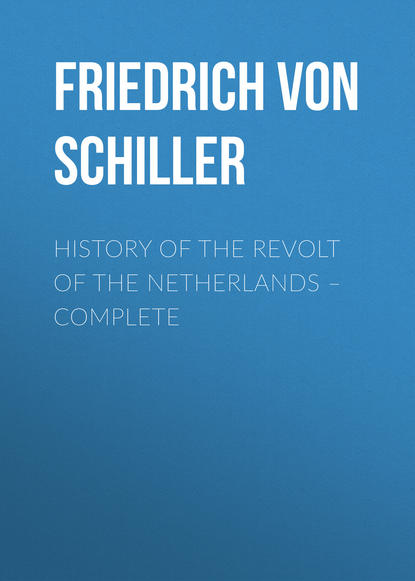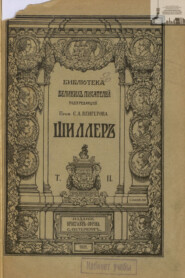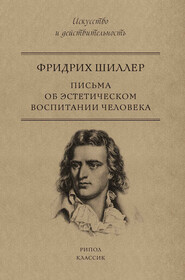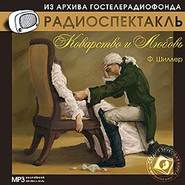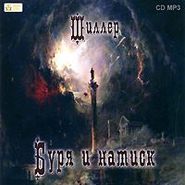По всем вопросам обращайтесь на: info@litportal.ru
(©) 2003-2024.
✖
History of the Revolt of the Netherlands – Complete
Настройки чтения
Размер шрифта
Высота строк
Поля
[The sentences passed upon the most eminent persons (for example, the sentence of death passed upon Strahlen, the burgomaster of Antwerp), were signed only by Vargas, Del Rio, and De la Torre.]
It is revolting to the feelings to think how the lives of the noblest and best were thus placed at the mercy of Spanish vagabonds, and how even the sanctuaries of the nation, its deeds and charters, were unscrupulously ransacked, the seals broken, and the most secret contracts between the sovereign and the state profaned and exposed.
[For an example of the unfeeling levity with which the most important matters, even decisions in cases of life and death, were treated in this sanguinary council, it may serve to relate what is told of the Counsellor Hesselts. He was generally asleep during the meeting, and when his turn came to vote on a sentence of death he used to cry out, still half asleep: “Ad patibulum! Ad patibulum!” so glibly did his tongue utter this word. It is further to be remarked of this Hesselts, that his wife, a daughter of the President Viglius, had expressly stipulated in the marriage- contract that he should resign the dismal office of attorney for the king, which made him detested by the whole nation.
Vigl. ad Hopp. lxvii., L.]
From the council of twelve (which, from the object of its institution, was called the council for disturbances, but on account of its proceedings is more generally known under the appellation of the council of blood, a name which the nation in their exasperation bestowed upon it), no appeal was allowed. Its proceedings could not be revised. Its verdicts were irrevocable and independent of all other authority. No other tribunal in the country could take cognizance of cases which related to the late insurrection, so that in all the other courts justice was nearly at a standstill. The great council at Malines was as good as abolished; the authority of the council of state entirely ceased, insomuch that its sittings were discontinued. On some rare occasions the duke conferred with a few members of the late assembly, but even when this did occur the conference was held in his cabinet, and was no more than a private consultation, without any of the proper forms being observed. No privilege, no charter of immunity, however carefully protected, had any weight with the council for disturbances.
[Vargas, in a few words of barbarous Latin, demolished at once the boasted liberties of the Netherlands. “Non curamus vestros privilegios,” he replied to one who wished to plead the immunities of the University of Louvain.]
It compelled all deeds and contracts to be laid before it, and often forced upon them the most strained interpetations and alterations. If the duke caused a sentence to be drawn out which there was reason to fear might be opposed by the states of Brabant, it was legalized without the Brabant seal. The most sacred rights of individuals were assailed, and a tyranny without example forced its arbitrary will even into the circle of domestic life. As the Protestants and rebels had hitherto contrived to strengthen their party so much by marriages with the first families in the country, the duke issued an edict forbidding all Netherlanders, whatever might be their rank or office, under pain of death and confiscation of property, to conclude a marriage without previously obtaining his permission.
All whom the council for disturbances thought proper to summon before it were compelled to appear, clergy as well as laity; the most venerable heads of the senate, as well as the reprobate rabble of the Iconoclasts. Whoever did not present himself, as indeed scarcely anybody did, was declared an outlaw, and his property was confiscated; but those who were rash or foolish enough to appear, or who were so unfortunate as to be seized, were lost without redemption. Twenty, forty, often fifty were summoned at the same time and from the same town, and the richest were always the first on whom the thunderbolt descended. The meaner citizens, who possessed nothing that could render their country and their homes dear to them, were taken unawares and arrested without any previous citation. Many eminent merchants, who had at their disposal fortunes of from sixty thousand to one hundred thousand florins, were seen with their hands tied behind their backs, dragged like common vagabonds at the horse’s tail to execution, and in Valenciennes fifty-five persons were decapitated at one time. All the prisons – and the duke immediately on commencing his administration had built a great number of them – were crammed full with the accused; hanging, beheading, quartering, burning were the prevailing and ordinary occupations of the day; the punishment of the galleys and banishment were more rarely heard of, for there was scarcely any offence which was reckoned too trival to be punished with death. Immense sums were thus brought into the treasury, which, however, served rather to stimulate the new viceroy’s and his colleagues’ thirst for gold than to quench it. It seemed to be his insane purpose to make beggars of the whole people, and to throw all their riches into the hands of the king and his servants. The yearly income derived from these confiscations was computed to equal the revenues of the first kingdoms of Europe; it is said to have been estimated, in a report furnished to the king, at the incredible amount of twenty million of dollars. But these proceedings were the more inhuman, as they often bore hardest precisely upon the very persons who were the most peaceful subjects, and most orthodox Roman Catholics, whom they could not want to injure. Whenever an estate was confiscated all the creditors who had claims upon it were defrauded. The hospitals, too, and public institutions, which such properties had contributed to support, were now ruined, and the poor, who had formerly drawn a pittance from this source, were compelled to see their only spring of comfort dried up. Whoever ventured to urge their well-grounded claims on the forfeited property before the council of twelve (for no other tribunal dared to interfere with these inquiries), consumed their substance in tedious and expensive proceedings, and were reduced to beggary before they saw the end of them. The histories of civilized states furnish but one instance of a similar perversion of justice, of such violation of the rights of property, and of such waste of human life; but Cinna, Sylla, and Marius entered vanquished Rome as incensed victors, and practised without disguise what the viceroy of the Netherlands performed under the venerable veil of the laws.
Up to the end of the year 1567 the king’s arrival had been confidently expected, and the well-disposed of the people had placed all their last hopes on this event. The vessels, which Philip had caused to be equipped expressly for the purpose of meeting him, still lay in the harbor of Flushing, ready to sail at the first signal; and the town of Brussels had consented to receive a Spanish garrison, simply because the king, it was pretended, was to reside within its walls. But this hope gradually vanished, as he put off the journey from one season to the next, and the new viceroy very soon began to exhibit powers which announced him less as a precursor of royalty than as an absolute minister, whose presence made that of the monarch entirely superfluous. To compete the distress of the provinces their last good angel was now to leave them in the person of the regent. From the moment when the production of the duke’s extensive powers left no doubt remaining as to the practical termination of her own rule, Margaret had formed the resolution of relinquishing the name also of regent. To see a successor in the actual possession of a dignity which a nine years’ enjoyment had made indispensable to her; to see the authority, the glory, the splendor, the adoration, and all the marks of respect, which are the usual concomitants of supreme power, pass over to another; and to feel that she had lost that which she could never forget she had once held, was more than a woman’s mind could endure; moreover, the Duke of Alva was of all men the least calculated to make her feel her privation the less painful by a forbearing use of his newly-acquired dignity. The tranquillity of the country, too, which was put in jeopardy by this divided rule, seemed to impose upon the duchess the necessity of abdicating. Many governors of provinces refused, without an express order from the court, to receive commands from the duke and to recognize him as co-regent.
The rapid change of their point of attraction could not be met by the courtiers so composedly and imperturbably but that the duchess observed the alteration, and bitterly felt it. Even the few who, like State Counsellor Viglius, still firmly adhered to her, did so less from attachment to her person than from vexation at being displaced by novices and foreigners, and from being too proud to serve a fresh apprenticeship under a new viceroy. But far the greater number, with all their endeavors to keep an exact mean, could not help making a difference between the homage they paid to the rising sun and that which they bestowed on the setting luminary. The royal palace in Brussels became more and more deserted, while the throng at Kuilemberg house daily increased. But what wounded the sensitiveness of the duchess most acutely was the arrest of Horn and Egmont, which was planned and executed by the duke without her knowledge or consent, just as if there had been no such person as herself in existence. Alva did, indeed, after the act was done, endeavor to appease her by declaring that the design had been purposely kept secret from her in order to spare her name from being mixed up in so odious a transaction; but no such considerations of delicacy could close the wound which had been inflicted on her pride. In order at once to escape all risk of similar insults, of which the present was probably only a forerunner, she despatched her private secretary, Macchiavell, to the court of her brother, there to solicit earnestly for permission to resign the regency. The request was granted without difficulty by the king, who accompanied his consent with every mark of his highest esteem. He would put aside (so the king expressed himself) his own advantage and that of the provinces in order to oblige his sister. He sent a present of thirty thousand dollars, and allotted to her a yearly pension of twenty thousand.
[Which, however, does not appear to have been very punctually paid, if a pamphlet maybe trusted which was printed during her lifetime. (It bears the title: Discours sur la Blessure de Monseigneur Prince d’Orange, 1582, without notice of the place where it was printed, and is to be found in the Elector’s library at Dresden.) She languished, it is there stated, at Namur in poverty, and so ill- supported by her son (the then governor of the Netherlands), that her own secretary, Aldrobandin, called her sojourn there an exile. But the writer goes on to ask what better treatment could she expect from a son who, when still very young, being on a visit to her at Brussels, snapped his fingers at her behind her back.]
At the same time a diploma was forwarded to the Duke of Alva, constituting him, in her stead, viceroy of all the Netherlands, with unlimited powers.
Gladly would Margaret have learned that she was permitted to resign the regency before a solemn assembly of the states, a wish which she had not very obscurely hinted to the king. But she was not gratified. She was particularly fond of solemnity, and the example of the Emperor, her father, who had exhibited the extraordinary spectacle of his abdication of the crown in this very city, seemed to have great attractions for her. As she was compelled to part with supreme power, she could scarcely be blamed for wishing to do so with as much splendor as possible. Moreover, she had not failed to observe how much the general hatred of the duke had effected in her own favor, and she looked, therefore, the more wistfully forward to a scene, which promised to be at once so flattering to her and so affecting. She would have been glad to mingle her own tears with those which she hoped to see shed by the Netherlanders for their good regent. Thus the bitterness of her descent from the throne would have been alleviated by the expression of general sympathy. Little as she had done to merit the general esteem during the nine years of her administration, while fortune smiled upon her, and the approbation of her sovereign was the limit to all her wishes, yet now the sympathy of the nation had acquired a value in her eyes as the only thing which could in some degree compensate to her for the disappointment of all her other hopes. Fain would she have persuaded herself that she had become a voluntary sacrifice to her goodness of heart and her too humane feelings towards the Netherlanders. As, however, the king was very far from being disposed to incur any danger by calling a general assembly of the states, in order to gratify a mere caprice of his sister, she was obliged to content herself with a farewell letter to them. In this document she went over her whole administration, recounted, not without ostentation, the difficulties with which she had had to struggle, the evils which, by her dexterity, she had prevented, and wound up at last by saying that she left a finished work, and had to transfer to her successor nothing but the punishment of offenders. The king, too, was repeatedly compelled to hear the same statement, and she left nothing undone to arrogate to herself the glory of any future advantages which it might be the good fortune of the duke to realize. Her own merits, as something which did not admit of a doubt, but was at the same time a burden oppressive to her modesty, she laid at the feet of the king.
Dispassionate posterity may, nevertheless; hesitate to subscribe unreservedly to this favorable opinion. Even though the united voice of her contemporaries, and the testimony of the Netherlands themselves vouch for it, a third party will not be denied the right to examine her claims with stricter scrutiny. The popular mind, easily affected, is but too ready to count the absence of a vice as an additional virtue, and, under the pressure of existing evil, to give excess of praise for past benefits.
The Netherlander seems to have concentrated all his hatred upon the Spanish name. To lay the blame of the national evils on the regent would tend to remove from the king and his minister the curses which he would rather shower upon them alone and undividedly; and the Duke of Alva’s government of the Netherlands was, perhaps, not the proper point of view from which to test the merits of his predecessor. It was undoubtedly no light task to meet the king’s expectations without infringing the rights of the people and the duties of humanity; but in struggling to effect these two contradictory objects Margaret had accomplished neither. She had deeply injured the nation, while comparatively she had done little service to the king. It is true that she at last crushed the Protestant faction, but the accidental outbreak of the Iconoclasts assisted her in this more than all her dexterity. She certainly succeeded by her intrigues in dissolving the league of the nobles, but not until the first blow had been struck at its roots by internal dissensions. The object, to secure which she had for many years vainly exhausted her whole policy, was effected at last by a single enlistment of troops, for which, however, the orders were issued from Madrid. She delivered to the duke, no doubt, a tranquillized country; but it cannot be denied that the dread of his approach had the chief share in tranquillizing it. By her reports she led the council in Spain astray; because she never informed it of the disease, but only of the occasional symptoms; never of the universal feeling and voice of the nation, but only of the misconduct of factions. Her faulty administration, moreover, drew the people into the crime, because she exasperated without sufficiently awing them. She it was that brought the murderous Alva into the country by leading the king to believe that the disturbances in the provinces were to be ascribed, not so much to the severity of the royal ordinances, as to the unworthiness of those who were charged with their execution. Margaret possessed natural capacity and intellect; and an acquired political tact enabled her to meet any ordinary case; but she wanted that creative genius which, for new and extraordinary emergencies, invents new maxims, or wisely oversteps old ones. In a country where honesty was the best policy, she adopted the unfortunate plan of practising her insidious Italian policy, and thereby sowed the seeds of a fatal distrust in the minds of the people. The indulgence which has been so liberally imputed to her as a merit was, in truth, extorted from her weakness and timidity by the courageous opposition of the nation; she had never departed from the strict letter of the royal commands by her own spontaneous resolution; never did the gentle feelings of innate humanity lead her to misinterpret the cruel purport of her instructions. Even the few concessions to which necessity compelled her were granted with an uncertain and shrinking hand, as if fearing to give too much; and she lost the fruit of her benefactions because she mutilated them by a sordid closeness. What in all the other relations of her life she was too little, she was on the throne too much – a woman! She had it in her power, after Granvella’s expulsion, to become the benefactress of the Belgian nation, but she did not. Her supreme good was the approbation of her king, her greatest misfortune his displeasure; with all the eminent qualities of her mind she remained an ordinary character because her heart was destitute of native nobility. She used a melancholy power with much moderation, and stained her government with no deed of arbitrary cruelty; nay, if it had depended on her, she would have always acted humanely. Years afterwards, when her idol, Philip II., had long forgotten her, the Netherlanders still honored her memory; but she was far from deserving the glory which her successor’s inhumanity reflected upon her.
She left Brussels about the end of December, 1567. The duke escorted her as far as the frontiers of Brabant, and there left her under the protection of Count Mansfeld in order to hasten back to the metropolis and show himself to the Netherlanders as sole regent.
TRIAL AND EXECUTION OF COUNTS EGMONT AND HORN.
The two counts were a few weeks after their arrest conveyed to Ghent under an escort of three thousand Spaniards, where they were confined in the citadel for more than eight months. Their trial commenced in due form before the council of twelve, and the solicitor-general, John Du Bois, conducted the proceedings. The indictment against Egmont consisted of ninety counts, and that against Horn of sixty. It would occupy too much space to introduce them here. Every action, however innocent, every omission of duty, was interpreted on the principle which had been laid down in the opening of the indictment, “that the two counts, in conjunction with the Prince of Orange, had planned the overthrow of the royal authority in the Netherlands, and the usurpation of the government of the country;” the expulsion of Granvella; the embassy of Egmont to Madrid; the confederacy of the Gueux; the concessions which they made to the Protestants in the provinces under their government – all were made to have a connection with, and reference to, this deliberate design. Thus importance was attached to the most insignificant occurrences, and one action made to darken and discolor another. By taking care to treat each of the charges as in itself a treasonable offence it was the more easy to justify a sentence of high treason by the whole.
The accusations were sent to each of the prisoners, who were required to reply to them within five days. After doing so they were allowed to employ solicitors and advocates, who were permitted free access to them; but as they were accused of treason their friends were prohibited from visiting them. Count Egmont employed for his solicitor Von Landas, and made choice of a few eminent advocates from Brussels.
The first step was to demur against the tribunal which was to try them, since by the privilege of their order they, as Knights of the Golden Fleece, were amenable only to the king himself, the grand master. But this demurrer was overruled, and they were required to produce their witnesses, in default of which they were to be proceeded against in contumaciam. Egmont had satisfactorily answered to eighty-two counts, while Count Horn had refuted the charges against him, article by article. The accusation and the defence are still extant; on that defence every impartial tribunal would have acquitted them both. The Procurator Fiscal pressed for the production of their evidence, and the Duke of Alva issued his repeated commands to use despatch. They delayed, however, from week to week, while they renewed their protests against the illegality of the court. At last the duke assigned them nine days to produce their proofs; on the lapse of that period they were to be declared guilty, and as having forfeited all right of defence.
During the progress of the trial the relations and friends of the two counts were not idle. Egmont’s wife, by birth a duchess of Bavaria, addressed petitions to the princes of the German empire, to the Emperor, and to the King of Spain. The Countess Horn, mother of the imprisoned count, who was connected by the ties of friendship or of blood with the principal royal families of Germany, did the same. All alike protested loudly against this illegal proceeding, and appealed to the liberty of the German empire, on which Horn, as a count of the empire, had special claims; the liberty of the Netherlands and the privileges of the Order of the Golden Fleece were likewise insisted upon. The Countess Egmont succeeded in obtaining the intercession of almost every German court in behalf of her husband. The King of Spain and his viceroy were besieged by applications in behalf of the accused, which were referred from one to the other, and made light of by both. Countess Horn collected certificates from all the Knights of the Golden Fleece in Spain, Germany, and Italy to prove the privileges of the order. Alva rejected them with a declaration that they had no force in such a case as the present. “The crimes of which the counts are accused relate to the affairs of the Belgian provinces, and he, the duke, was appointed by the king sole judge of all matters connected with those countries.”
Four months had been allowed to the solicitor-general to draw up the indictment, and five were granted to the two counts to prepare for their defence. But instead of losing their time and trouble in adducing their evidence, which, perhaps, would have profited then but little, they preferred wasting it in protests against the judges, which availed them still less. By the former course they would probably have delayed the final sentence, and in the time thus gained the powerful intercession of their friends might perhaps have not been ineffectual. By obstinately persisting in denying the competency of the tribunal which was to try them, they furnished the duke with an excuse for cutting short the proceedings. After the last assigned period had expired, on the 1st of June, 1658, the council of twelve declared them guilty, and on the 4th of that month sentence of death was pronounced against them.
The execution of twenty-five noble Netherlanders, who were beheaded in three successive days in the marketplace at Brussels, was the terrible prelude to the fate of the two counts. John Casembrot von Beckerzeel, secretary to Count Egmont, was one of the unfortunates, who was thus rewarded for his fidelity to his master, which he steadfastly maintained even upon the rack, and for his zeal in the service of the king, which he had manifested against the Iconoclasts. The others had either been taken prisoners, with arms in their hands, in the insurrection of the “Gueux,” or apprehended and condemned as traitors on account of having taken a part in the petition of the nobles.
The duke had reason to hasten the execution of the sentence. Count Louis of Nassau had given battle to the Count of Aremberg, near the monastery of Heiligerlee, in Groningen, and had the good fortune to defeat him. Immediately after his victory he had advanced against Groningen, and laid siege to it. The success of his arms had raised the courage of his faction; and the Prince of Orange, his brother, was close at hand with an army to support him. These circumstances made the duke’s presence necessary in those distant provinces; but he could not venture to leave Brussels before the fate of two such important prisoners was decided. The whole nation loved them, which was not a little increased by their unhappy fate. Even the strict papists disapproved of the execution of these eminent nobles. The slightest advantage which the arms of the rebels might gain over the duke, or even the report of a defeat, would cause a revolution in Brussels, which would immediately set the two counts at liberty. Moreover, the petitions and intercessions which came to the viceroy, as well as to the King of Spain, from the German princes, increased daily; nay, the Emperor, Maximilian II., himself caused the countess to be assured “that she had nothing to fear for the life of her spouse.” These powerful applications might at last turn the king’s heart in favor of the prisoners. The king might, perhaps, in reliance on his viceroy’s usual dispatch, put on the appearance of yielding to the representations of so many sovereigns, and rescind the sentence of death under the conviction that his mercy would come too late. These considerations moved the duke not to delay the execution of the sentence as soon as it was pronounced.
On the day after the sentence was passed the two counts were brought, under an escort of three thousand Spaniards, from Ghent to Brussels, and placed in confinement in the Brodhause, in the great market-place. The next morning the council of twelve were assembled; the duke, contrary to his custom, attended in person, and both the sentences, in sealed envelopes, were opened and publicly read by Secretary Pranz. The two counts were declared guilty of treason, as having favored and promoted the abominable conspiracy of the Prince of Orange, protected the confederated nobles, and been convicted of various misdemeanors against their king and the church in their governments and other appointments. Both were sentenced to be publicly beheaded, and their heads were to be fixed upon pikes and not taken down without the duke’s express command. All their possessions, fiefs, and rights escheated to the royal treasury. The sentence was signed only by the duke and the secretary, Pranz, without asking or caring for the consent of the other members of the council.
During the night between the 4th and 5th of June the sentences were brought to the prisoners, after they had already gone to rest. The duke gave them to the Bishop of Ypres, Martin Rithov, whom he had expressly summoned to Brussels to prepare the prisoners for death. When the bishop received this commission he threw himself at the feet of the duke, and supplicated him with tears in his eyes for mercy, at least for respite for the prisoners; but he was answered in a rough and angry voice that he had been sent for from Ypres, not to oppose the sentence, but by his spiritual consolation to reconcile the unhappy noblemen to it.
Egmont was the first to whom the bishop communicated the sentence of death. “That is indeed a severe sentence,” exclaimed the count, turning pale, and with a faltering voice. “I did not think that I had offended his majesty so deeply as to deserve such treatment. If, however, it must be so I submit to my fate with resignation. May this death atone for my offence, and save my wife and children from suffering. This at least I think I may claim for my past services. As for death, I will meet it with composure, since it so pleases God and my king.” He then pressed the bishop to tell him seriously and candidly if there was no hope of pardon. Being answered in the negative, he confessed and received the sacrament from the priest, repeating after him the mass with great devoutness. He asked what prayer was the best and most effective to recommend him to God in his last hour. On being told that no prayer could be more effectual than the one which Christ himself had taught, he prepared immediately to repeat the Lord’s prayer. The thoughts of his family interrupted him; he called for pen and ink, and wrote two letters, one to his wife, the other to the king. The latter was as follows:
“Sire, – This morning I have heard the sentence which your majesty has been pleased to pass upon me. Far as I have ever been from attempting anything against the person or service of your majesty, or against the true, old, and Catholic religion, I yet submit myself with patience to the fate which it has pleased God to ordain should suffer. If, during the past disturbances, I have omitted, advised, or done anything that seems at variance with my duty, it was most assuredly performed with the best intentions, or was forced upon me by the pressure of circumstances. I therefore pray your majesty to forgive me, and, in consideration of my past services, show mercy to my unhappy wife, my poor children, and servants. In a firm hope of this, I commend myself – to the infinite mercy of God.
“Your majesty’s most faithful vassal and servant,
“LAMORAL COUNT EGMONT.
“BRUSSELS, June 5, 1568, near my last moments.”
This letter he placed in the hands of the bishop, with the strongest injunctions for its safe delivery; and for greater security he sent a duplicate in his own handwriting to State Counsellor Viglius, the most upright man in the senate, by whom, there is no doubt, it was actually delivered to the king. The family of the count were subsequently reinstated in all his property, fiefs, and rights, which, by virtue of the sentence, had escheated to the royal treasury.
Meanwhile a scaffold had been erected in the marketplace, before the town hall, on which two poles were fixed with iron spikes, and the whole covered with black cloth. Two-and-twenty companies of the Spanish garrison surrounded the scaffold, a precaution which was by no means superfluous. Between ten and eleven o’clock the Spanish guard appeared in the apartment of the count; they were provided with cords to tie his hands according to custom. He begged that this might be spared him, and declared that he was willing and ready to die. He himself cut off the collar from his doublet to facilitate the executioner’s duty. He wore a robe of red damask, and over that a black Spanish cloak trimmed with gold lace. In this dress he appeared on the scaffold, and was attended by Don Julian Romero, maitre-de-camp; Salinas, a Spanish captain; and the Bishop of Ypres. The grand provost of the court, with a red wand in his hand, sat on horseback at the foot of the scaffold; the executioner was concealed beneath.
Egmont had at first shown a desire to address the people from the scaffold. He desisted, however, on the bishop’s representing to him that either he would not be heard, or that if he were, he might – such at present was the dangerous disposition of the people – excite them to acts of violence, which would only plunge his friends into destruction. For a few moments he paced the scaffold with noble dignity, and lamented that it had not been permitted him to die a more honorable death for his king and his country. Up to the last he seemed unable to persuade himself that the king was in earnest, and that his severity would be carried any further than the mere terror of execution. When the decisive period approached, and he was to receive the extreme unction, he looked wistfully round, and when there still appeared no prospect of a reprieve, he turned to Julian Romero, and asked him once more if there was no hope of pardon for him. Julian Romero shrugged his shoulders, looked on the ground, and was silent.
He then closely clenched his teeth, threw off his mantle and robe, knelt upon the cushion, and prepared himself for the last prayer. The bishop presented him the crucifix to kiss, and administered to him extreme unction, upon which the count made him a sign to leave him. He drew a silk cap over his eyes, and awaited the stroke. Over the corpse and the streaming blood a black cloth was immediately thrown.
All Brussels thronged around the scaffold, and the fatal blow seemed to fall on every heart. Loud sobs alone broke the appalling silence. The duke himself, who watched the execution from a window of the townhouse, wiped his eyes as his victim died.
Shortly afterwards Count Horn advanced on the scaffold. Of a more violent temperament than his friend, and stimulated by stronger reasons for hatred against the king, he had received the sentence with less composure, although in his case, perhaps, it was less unjust. He burst forth in bitter reproaches against the king, and the bishop with difficulty prevailed upon him to make a better use of his last moments than to abuse them in imprecations on his enemies. At last, however, he became more collected, and made his confession to the bishop, which at first he was disposed to refuse.
He mounted the scaffold with the same attendants as his friend. In passing he saluted many of his acquaintances; his hands were, like Egmont’s, free, and he was dressed in a black doublet and cloak, with a Milan cap of the same color upon his head. When he had ascended, he cast his eyes upon the corpse, which lay under the cloth, and asked one of the bystanders if it was the body of his friend. On being answered in the affirmative, he said some words in Spanish, threw his cloak from him, and knelt upon the cushion. All shrieked aloud as he received the fatal blow.
The heads of both were fixed upon the poles which were set up on the scaffold, where they remained until past three in the afternoon, when they were taken down, and, with the two bodies, placed in leaden coffins and deposited in a vault.
In spite of the number of spies and executioners who surrounded the scaffold, the citizens of Brussels would not be prevented from dipping their handkerchiefs in the streaming blood, and carrying home with them these precious memorials.
SIEGE OF ANTWERP BY THE PRINCE OF PARMA, IN THE YEARS 1584 AND 1585.
It is an interesting spectacle to observe the struggle of man’s inventive genius in conflict with powerful opposing elements, and to see the difficulties which are insurmountable to ordinary capacities overcome by prudence, resolution, and a determined will. Less attractive, but only the more instructive, perhaps, is the contrary spectacle, where the absence of those qualities renders all efforts of genius vain, throws away all the favors of fortune, and where inability to improve such advantages renders hopeless a success which otherwise seemed sure and inevitable. Examples of both kinds are afforded by the celebrated siege of Antwerp by the Spaniards towards the close of the sixteenth century, by which that flourishing city was forever deprived of its commercial prosperity, but which, on the other hand, conferred immortal fame on the general who undertook and accomplished it.
Twelve years had the war continued which the northern provinces of Belgium had commenced at first in vindication simply of their religious freedom, and the privileges of their states, from the encroachments of the Spanish viceroy, but maintained latterly in the hope of establishing their independence of the Spanish crown. Never completely victors, but never entirely vanquished, they wearied out the Spanish valor by tedious operations on an unfavorable soil, and exhausted the wealth of the sovereign of both the Indies while they themselves were called beggars, and in a degree actually were so. The league of Ghent, which had united the whole Netherlands, Roman Catholic and Protestant, in a common and (could such a confederation have lasted) invincible body, was indeed dissolved; but in place of this uncertain and unnatural combination the northern provinces had, in the year 1579, formed among themselves the closer union of Utrecht, which promised to be more lasting, inasmuch as it was linked and held together by common political and religious interests. What the new republic had lost in extent through this separation from the Roman Catholic provinces it was fully compensated for by the closeness of alliance, the unity of enterprise, and energy of execution; and perhaps it was fortunate in thus timely losing what no exertion probably would ever have enabled it to retain.
The greater part of the Walloon provinces had, in the year 1584, partly by voluntary submission and partly by force of arms, been again reduced under the Spanish yoke. The northern districts alone had been able at all successfully to oppose it. A considerable portion of Brabant and Flanders still obstinately held out against the arms of the Duke Alexander of Parma, who at that time administered the civil government of the provinces, and the supreme command of the army, with equal energy and prudence, and by a series of splendid victories had revived the military reputation of Spain. The peculiar formation of the country, which by its numerous rivers and canals facilitated the connection of the towns with one another and with the sea, baffled all attempts effectually to subdue it, and the possession of one place could only be maintained by the occupation of another. So long as this communication was kept up Holland and Zealand could with little difficulty assist their allies, and supply them abundantly by water as well as by land with all necessaries, so that valor was of no use, and the strength of the king’s troops was fruitlessly wasted on tedious sieges.
Of all the towns in Brabant Antwerp was the most important, as well from, its wealth, its population, and its military force, as by its position on the mouth of the Scheldt. This great and populous town, which at this date contained more than eighty thousand inhabitants, was one of the most active members of the national league, and had in the course of the war distinguished itself above all the towns of Belgium by an untamable spirit of liberty. As it fostered within its bosom all the three Christian churches, and owed much of its prosperity to this unrestricted religious liberty, it had the more cause to dread the Spanish rule, which threatened to abolish this toleration, and by the terror of the Inquisition to drive all the Protestant merchants from its markets. Moreover it had had but too terrible experience of the brutality of the Spanish garrisons, and it was quite evident that if it once more suffered this insupportable yoke to be imposed upon it it would never again during the whole course of the war be able to throw it off.
But powerful as were the motives which stimulated Antwerp to resistance, equally strong were the reasons which determined the Spanish general to make himself master of the place at any cost. On the possession of this town depended in a great measure that of the whole province of Brabant, which by this channel chiefly derived its supplies of corn from Zealand, while the capture of this place would secure to the victor the command of the Scheldt. It would also deprive the league of Brabant, which held its meetings in the town, of its principal support; the whole faction of its dangerous influence, of its example, its counsels, and its money, while the treasures of its inhabitants would open plentiful supplies for the military exigencies of the king. Its fall would sooner or later necessarily draw after it that of all Brabant, and the preponderance of power in that quarter would decide the whole dispute in favor of the king. Determined by these grave considerations, the Duke of Parma drew his forces together in July, 1584, and advanced from his position at Dornick to the neighborhood of Antwerp, with the intention of investing it.
But both the natural position and fortifications of the town appeared to defy attacks. Surrounded on the side of Brabant with insurmountable works and moats, and towards Flanders covered by the broad and rapid stream of the Scheldt, it could not be carried by storm; and to blockade a town of such extent seemed to require a land force three times larger than that which the duke had, and moreover a fleet, of which he was utterly destitute. Not only did the river yield the town all necessary supplies from Ghent, it also opened an easy communication with the bordering province of Zealand. For, as the tide of the North Sea extends far up the Scheldt, and ebbs and flows regularly, Antwerp enjoys the peculiar advantage that the same tide flows past it at different times in two opposite directions. Besides, the adjacent towns of Brussels, Malines, Ghent, Dendermonde, and others, were all at this time in the hands of the league, and could aid the place from the land side also. To blockade, therefore, the town by land, and to cut off its communication with Flanders and Brabant, required two different armies, one on each bank of the river. A sufficient fleet was likewise needed to guard the passage of the Scheldt, and to prevent all attempts at relief, which would most certainly be made from Zealand. But by the war which he had still to carry on in other quarters, and by the numerous garrisons which he was obliged to leave in the towns and fortified places, the army of the duke was reduced to ten thousand infantry and seventeen hundred horse, a force very inadequate for an undertaking of such magnitude. Moreover, these troops were deficient in the most necessary supplies, and the long arrears of pay had excited them to subdued murmurs, which hourly threatened to break out into open mutiny. If, notwithstanding these difficulties, he should still attempt the siege, there would be much occasion to fear from the strongholds of the enemy, which were left in the rear, and from which it would be easy, by vigorous sallies, to annoy an army distributed over so many places, and to expose it to want by cutting off its supplies.
All these considerations were brought forward by the council of war, before which the Duke of Parrna now laid his scheme. However great the confidence which they placed in themselves, and in the proved abilities of such a leader, nevertheless the most experienced generals did not disguise their despair of a fortunate result. Two only were exceptions, Capizucchi and Mondragone, whose ardent courage placed them above all apprehensions; the rest concurred in dissuading the duke from attempting so hazardous an enterprise, by which they ran the risk of forfeiting the fruit of all their former victories and tarnishing the glory they had already earned.
But objections, which he had already made to himself and refuted, could not shake the Duke of Parma in his purpose. Not in ignorance of its inseparable dangers, not from thoughtless overvaluing his forces had he taken this bold resolve. But that instinctive genius which leads great men by paths which inferior minds either never enter upon or never finish, raised him above the influence of the doubts which a cold and narrow prudence would oppose to his views; and, without being able to convince his generals, he felt the correctness of his calculations in a conviction indistinct, indeed, but not on that account less indubitable. A succession of fortunate results had raised his confidence, and the sight of his army, unequalled in Europe for discipline, experience, and valor, and commanded by a chosen body of the most distinguished officers, did not permit him to entertain fear for a moment. To those who objected to the small number of his troops, he answered, that however long the pike, it is only the point that kills; and that in military enterprise, the moving power was of more importance than the mass to be moved. He was aware, indeed, of the discontent of his troops, but he knew also their obedience; and he thought, moreover, that the best means to stifle their murmurs was by keeping them employed in some important undertaking, by stimulating their desire of glory by the splendor of the enterprise, and their rapacity by hopes of the rich booty which the capture of so wealthy a town would hold out.
In the plan which he now formed for the conduct of the siege he endeavored to meet all these difficulties. Famine was the only instrument by which he could hope to subdue the town; but effectually to use this formidable weapon, it would be expedient to cut off all its land and water communications. With this view, the first object was to stop, or at least to impede, the arrival of supplies from Zealand. It was, therefore, requisite not only to carry all the outworks, which the people of Antwerp had built on both shores of the Scheldt for the protection of their shipping; but also, wherever feasible, to throw up new batteries which should command the whole course of the river; and to prevent the place from drawing supplies from the land side, while efforts were being made to intercept their transmission by sea, all the adjacent towns of Brabant and Flanders were comprehended in the plan of the siege, and the fall of Antwerp was based on the destruction of all those places. A bold and, considering the duke’s scanty force, an almost extravagant project, which was, however, justified by the genius of its author, and crowned by fortune with a brilliant result.





